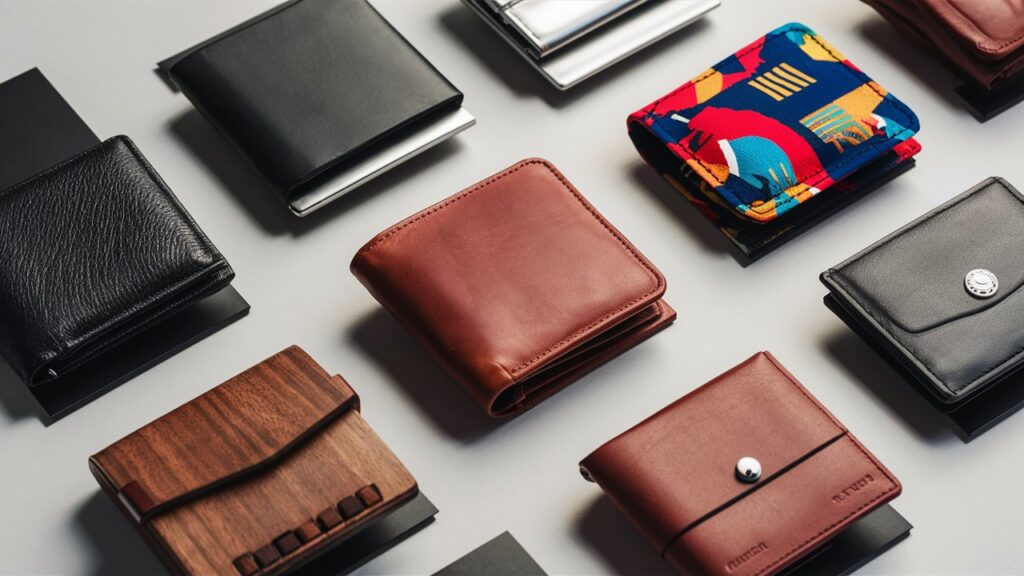
How to Choose the Perfect Wallet
Introduction
Choosing the perfect wallet might seem like a simple task, but it’s a decision that can significantly impact your daily life. A wallet is not just a functional item; it’s an accessory that reflects your style and meets your practical needs. In this guide, we’ll walk you through everything you need to know to pick the perfect wallet that suits your lifestyle and preferences.
Understanding Your Needs
Before diving into the types and features of wallets, it’s essential to understand what you need from your wallet.
Daily Usage
Think about how often you use your wallet. Are you constantly pulling it out for transactions, or do you use it mainly to store essentials?
Special Occasions
Do you need a different wallet for special occasions or formal events? Sometimes, a sleek, minimalistic wallet might be more suitable for these times.
Lifestyle Considerations
Your lifestyle plays a huge role. If you’re always on the go, a compact, sturdy wallet might be ideal. For those who travel frequently, a travel wallet with ample space and security features could be perfect.
Types of Wallets
Bi-Fold Wallets
Description: These are the most common type of wallet, folding in half with compartments for cards and cash.
Pros and Cons:
- Pros: Easy to use, fits in most pockets.
- Cons: Can become bulky if overstuffed.
Tri-Fold Wallets
Description: These wallets fold into three sections, offering more space.
Pros and Cons:
- Pros: More compartments, secure.
- Cons: Thicker and can be bulkier.
Slim Wallets
Description: Designed to minimize bulk, holding only the essentials.
Pros and Cons:
- Pros: Lightweight, fits easily in front pockets.
- Cons: Limited space for cards and cash.
Money Clips
Description: A minimalist approach to carrying cash and cards.
Pros and Cons:
- Pros: Very compact, stylish.
- Cons: Limited capacity, less secure for cards.
Travel Wallets
Description: Larger wallets designed to hold passports, tickets, and multiple currencies.
Pros and Cons:
- Pros: Great for organization, ample space.
- Cons: Too large for everyday use.
Cardholders
Description: Small, slim wallets specifically for holding cards.
Pros and Cons:
- Pros: Ultra-slim, easy to carry.
- Cons: No space for cash.
Material Matters
Leather Wallets
Types of Leather: Full-grain, top-grain, genuine, and bonded leather.
Durability and Aesthetics: Leather wallets are durable and develop a patina over time, adding to their character.
Synthetic Wallets
Materials Used: PU leather, polyester, nylon.
Pros and Cons:
- Pros: Affordable, easy to clean.
- Cons: Less durable, can look less premium.
Fabric Wallets
Common Fabrics: Canvas, denim, cotton.
Pros and Cons:
- Pros: Lightweight, often washable.
- Cons: Can wear out faster, less formal.
Features to Consider
Number of Compartments
Determine how many cards, IDs, and cash compartments you need.
RFID Protection
Essential for preventing electronic pickpocketing.
Size and Weight
Choose a wallet that fits comfortably in your pocket without being cumbersome.
Additional Features
Look for features like coin pockets, ID windows, and zipper compartments based on your needs.
Style and Design
Classic vs. Modern
Classic designs are timeless, while modern designs might offer more innovative features.
Color Choices
Black and brown are traditional, while bold coloStore your wallet in a rs can make a statement.
Branding and Logos
Decide if you prefer a wallet with visible branding or a more understated design.
Budget Considerations
Price Ranges
Wallets can range from $10 to over $500. Set a budget that reflects your needs and preferences.
Balancing Cost and Quality
Higher prices often correlate with better quality, but many affordable options still offer durability and style.
Brand Reputation
Popular Brands
Brands like Bellroy, Herschel, and Gucci are known for their quality and design.
Customer Reviews and Ratings
Always check reviews to ensure the wallet meets expectations in durability and functionality.
Maintenance and Care
Cleaning Tips
Use appropriate cleaning methods based on the wallet’s material.
Storage Advice
dry place and avoid overstuffing it to maintain its shape.
Environmental Impact
Eco-Friendly Options
Look for brands that use sustainable materials and ethical production methods.
Sustainable Brands
Brands like Timberland and EcoCork focus on sustainability.
Where to Buy
Online vs. In-Store
Online shopping offers convenience and variety, while in-store allows you to feel the wallet before purchasing.
Trusted Retailers
Buy from reputable stores to ensure authenticity and quality.
Personalizing Your Wallet
Customization Options
Some brands offer engraving or monogramming services.
Personal Touches
Add a unique touch with custom inserts or personalized features.
Common Mistakes to Avoid
Overstuffing
This can damage the wallet and make it uncomfortable to carry.
Ignoring Material Quality
Cheap materials might save money initially but can wear out quickly.
Making the Final Decision
Reviewing Your Priorities
Ensure the wallet meets all your essential criteria before buying.
Test and Feel
If possible, test the wallet to see how it feels in your hand and pocket.
Conclusion
Choosing the perfect wallet is about balancing functionality, style, and personal preference. By understanding your needs and considering the various types, materials, features, and brands, you can find a wallet that not only serves its purpose but also complements your style.
